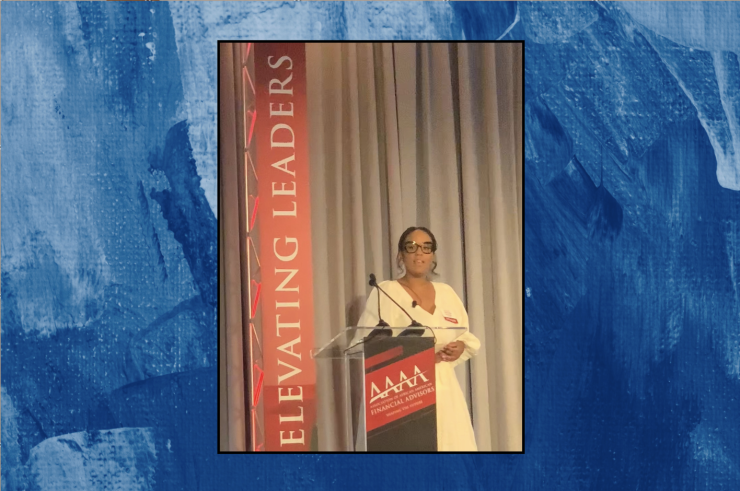Advisors need to start using AI, but they also need to use it in a way that encourages diversity and inclusion in order to grow their client base, said Erin Reddick, founder of
"I would recommend you actually start using the technology, so applying AI to your industry and your jobs," said Reddick, who was speaking at
Reddick, an AI developer who held prominent roles at tech powerhouses including Meta and Microsoft, created ChatBlackGPT as a large language model (LLM) based on Black culture and community after seeing
"There's an AI overload. But somehow, in all the billions of dollars invested in all this technology, we were still left behind," she said, speaking to hundreds of Black advisors in the room on Sept. 11. "Do you know how much it costs to run ChatGPT every day? $700,000 a day … so you should really not lose the opportunity to learn how to be involved."
READ MORE:
The audience mostly asked questions on privacy and the risks of so-called hallucinations — when large language models can give a wrong or biased output.
A
READ MORE:
Reddick showed an example of when she asked a general GPT, "What is a
"A 'black job' typically refers to illegal or unreported employment. This term is often used to describe work that is not officially documented or taxed, which means it operates outside the formal economy. People engaging in black jobs may do so to avoid taxes, labor laws or other regulations."
Reddick told the audience, "You can see here in a recent, contemporary context, that there is a flaw and there is a bias, even just in a simple phrase."
When Reddick ran the same question through ChatBlackGPT, it gave a much different output:
"The term 'Black job' historically refers to types of employment predominantly held by Black individuals, often because of systemic racial discrimination and segregation in the labor market. These jobs were typically lower-paying, labor-intensive and lacked opportunities for advancement. They were often seen as undesirable by the broader society and were assigned to Black workers due to exclusion from more prestigious or higher-paying occupations."
Reddick shared those examples not to discourage advisors from using AI but to encourage them to become more proactive in preventing biases and ensuring there is diversity and inclusion added to the output of any AI tool — whether it be to write client emails, craft investment strategies or rebalance portfolios.
READ MORE:
"The Black community continues to face a significant
Reddick suggested two AI tools for advisors, particularly those who are starting their own practice: Gamma, which can create a business website or presentation in minutes; and Harpa AI, which can help write customized summaries or responses to emails, videos and blogs.
Reddick also encouraged advisors to use AI tools to help write educational materials in order to capture a wider and younger client base. This is critical for the many advisors who are concerned about the ability to keep younger generations of clients, as an estimated $73 trillion in wealth is expected to pass from the baby boomers to younger generations by 2045 in what is being called the
READ MORE:
"Having these conversations earlier will be better if we can use AI to scale those conversations and give people access points to learn more, especially from all of your expertise," Reddick said. "That could look like making sure that you have educational literature, you're serving markets in ways that they can relate to, and if you're catering to different populations."






